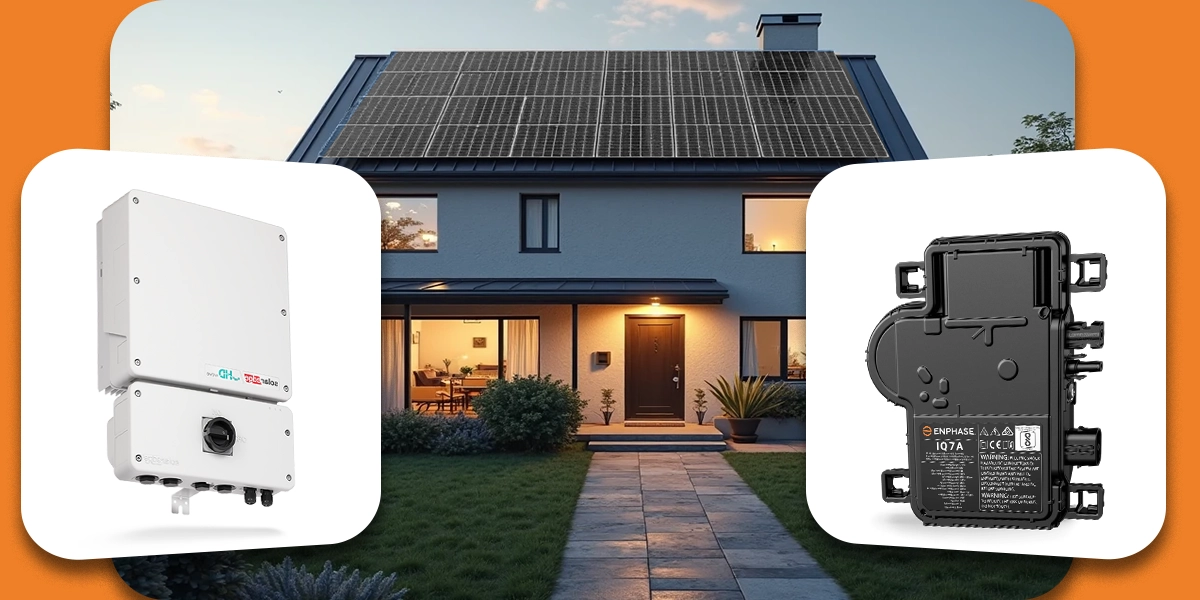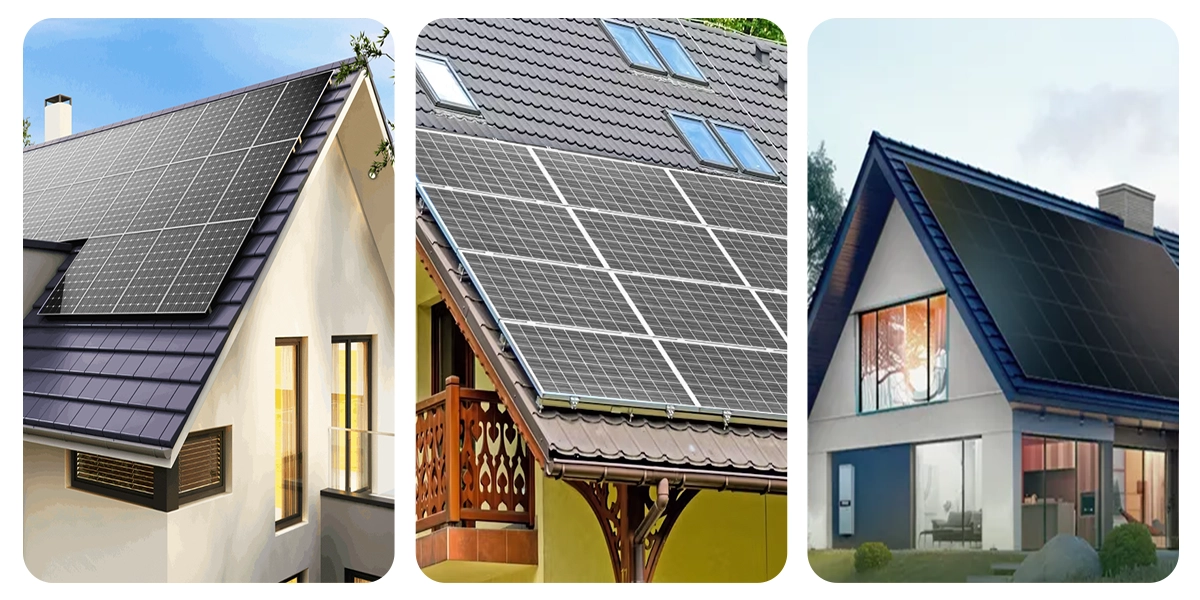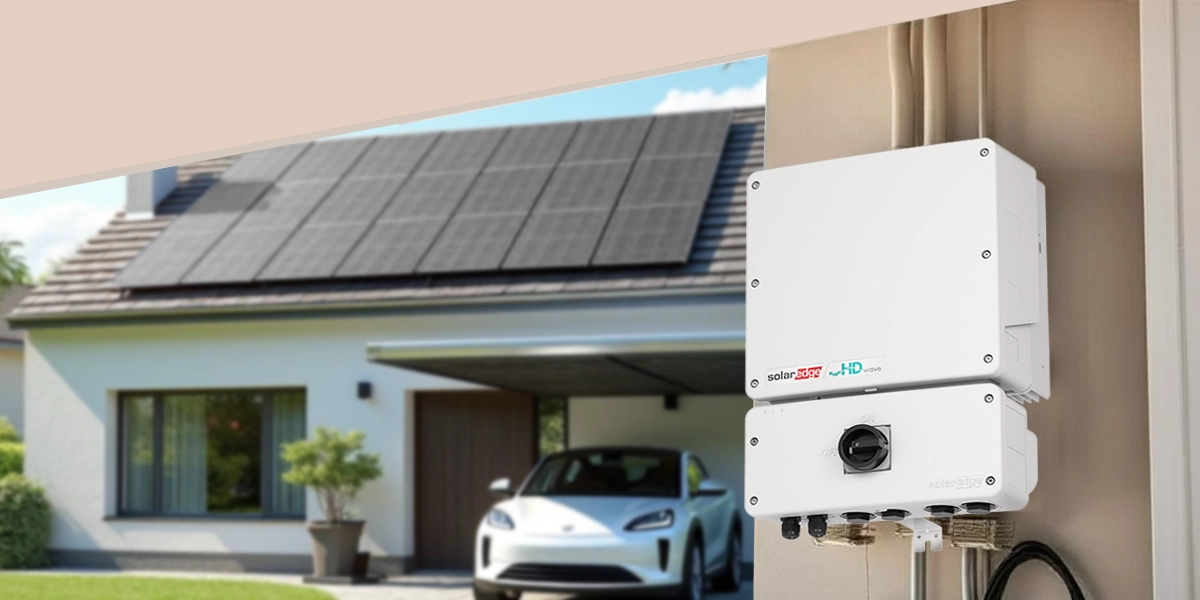- Updated On: July 24, 2025
Enphase vs. SolarEdge: Which Solar
Inverter is Best for Your Home?
As solar becomes a smart, long-term residential investment, the selection of the proper solar equipment is pivotal to achieve the highest solar performance. A solar inverter is the most significant part of a solar energy system that converts solar energy into electricity your home can use, so it’s the heartbeat of any system. With best system reliability and energy efficiency, two industry competitors are competing: Enphase vs SolarEdge. Together, they control 95% of the global inverter market, with Enphase controlling 48% and SolarEdge capturing 40% of the American market alone. Both offer leading-edge technology with unique designs, microinverters vs. power optimizers. But the question remains, what is really best for your house?

To help you choose the best inverter for your home, we will analyze both options on the basis of some major factors.
What is a solar inverter?
One of the most essential elements of a home PV system is a solar panel inverter. Solar panels generate direct current (DC) electricity from the sun, and the inverters convert it to alternating current (AC) electricity, which we use in our homes. The primary difference between Enphase and SolarEdge lies in the point at which the conversion occurs within the system.
How do Enphase Microinverters work?
The Enphase system uses microinverters, which are embedded in every solar panel and perform various tasks, including communication, DC/AC conversion, maximum power point tracking, and quick shutdown. The microinverters first identify the solar panel’s output and calculate the right voltage and current combination that will generate the most power. Maximum power point tracking, or MPPT, is the procedure that tracks it multiple times per second. Furthermore, the DC power is converted to AC power via the microinverters. These inverters make sure that the conversion in each panel occurs at exactly the correct MPP, as each solar panel in an array will have a different MPP.

Additionally, most micro-invertors have an efficiency rating of 97% and they are capable of rapid shutdown of systems for safety. The National Electrical Code (NEC) mandates that all grid-tied rooftop solar systems must turn off in a power outage to control electricity and protect utility workers from accidental electrocution.
How do SolarEdge String Inverters work?
SolarEdge uses a string inverter with power optimizers. Besides MPPT monitoring and communication with the main inverter, power optimizers can also be used as quick shutdown systems. SolarEdge power optimizers don’t invert DC to AC as Enphase microinverters do. Rather, the main inverter box takes in DC power and converts it to AC. The home’s main AC panel could be supplied electricity after conversion. These techniques enable SolarEdge Home Hub inverter to convert DC electricity to AC, efficiently with a rate of above 99%. The charging of a solar battery using DC power with capability to retain high efficiency is another benefit of this single conversion.

Comparing Enphase vs. SolarEdge: Which one is better?
Your choice of an inverter is as critical as the solar panel brand. Scalability, warranties, voltage performance, and efficiency are the main factors to consider while selecting an adequate solar inverter.

Scalability:
For customers who plan an increase in their future power use, like adding an electric car or solar batteries, scalability matters. Enphase microinverters have greater scalability by simply adding solar panels with compatible microinverters, but SolarEdge systems are restricted by the size of the central inverter that can accept a specific number of solar panels.
Efficiency:
Efficiency is one of the most important parameters for any solar system. The two parts of the SolarEdge system are the power optimizer, which has an efficiency of 99.5%, and the central inverter, which has an efficiency of 99%. This results in a 99.25% overall efficiency. The effectiveness of conversion for the Enphase IQ 7 series is only 97%.
Yet microinverters are better at handling shade and complicated rooftop designs, even though SolarEdge power optimizers cause the system to operate more efficiently under partial shading. So, a microinverter-based system will still tend to have marginally better overall system efficiency than a power optimizer-based system. Although Enphase microinverters have a tendency to overheat when attached to rooftops, decreasing their efficiency and lifespan.
Additionally, both companies now provide upgraded tracking software that enables homeowners to more effectively track their energy production and consumption. For those wanting to get the solar energy efficiency and overall system performance, the updates make both systems more appealing. Overall, both brands have their drawbacks and advantages, but SolarEdge gains the upper hand over Enphase in terms of efficiency.
Warranty:
It is evident that SolarEdge and Enphase provide comparable warranty programs. The longest product warranty in the industry, lasting 25 years, is offered by Enphase microinverters. The core inverter has a 12-year warranty, while SolarEdge power optimizers also have a 25-year warranty. Although it costs extra, SolarEdge offers warranty extensions of 20 and 25 years.
Although installation work is not covered by either company’s warranty, product failures are. This is why a 25-year warranty is vital for both the SolarEdge and Enphase systems. A central inverter hung on the wall may be replaced rather easily; however, replacing a damaged micro inverter or power optimizer connected to a solar panel takes a lot more work.
Price:
While comparing the cost of Enphase vs SolarEdge, Enphase systems are slightly expensive as they consist of microinverters to allow panel-level optimization, while SolarEdge uses a centralized inverter with power optimizers. Both works well, but Enphase stands out due to its flexibility, reliability, and easier future upgrade. It’s typically the best choice for homeowners seeking long-term efficiency and panel-level monitoring.
Enphase vs SolarEdge: Which is the best option?
When comparing Enphase VS SolarEdge, both solar inverters have their unique characteristics. However, there are some reasons you might choose inverters with panel-level optimization. They facilitate boosting solar panel performance on complex rooftops or roofs with shadows during the day. Additionally, microinverters track the output of individual solar panels, allowing you to determine how many kWh each panel in your array generates in comparison to the others. Moreover, the performance of the entire system remains unaffected if one microinverter fails.
On the other hand, SolarEdge is the best choice if you want a DC-coupled solar battery or require the highest efficiency DC-to-AC conversion. SolarEdge is an excellent choice if you’re installing a new solar+battery system and don’t intend to add more solar in the future. It supports battery backup and EV charging, and its monitoring is getting better. For these reasons, feel free to select SolarEdge. But, if you want more solar and have a SolarEdge inverter, you may need to replace it with a model that can handle more power input. However, a single Enphase Envoy combiner can handle up to 300 microinverters at a time.
Consulting with a trusted solar installer like Solar SME can help you choose the best solar inverter according to your requirements. You can get a FREE Quote by using our smart solar calculator.
Related Articles:
You may come across different types of solar panels in the market. Based on efficiency and performance, each type has its unique characteristics, pros and performance metrics in different conditions. Explore each type and choose the right PV system!
Maybe you’ve heard of solar panel kits, but you don’t know exactly what they are and how they’re different from solar installations. Well, they are, kind of. Here’s what you need to know about solar panel kits.
Solar Inverters are the brains of solar PV systems. Several types of solar inverters are available on the market. If you are concerned about what size inverter you need, this article is for you. Learn about some tips of inverter sizing for maximum performance.



